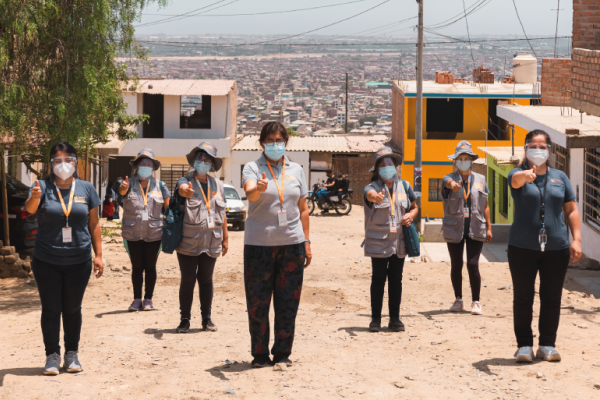Isolation and social distancing are necessary public health measures to reduce the spread of COVID-19, but in turn, they trigger stress, anxiety and depression in mankind.
Uncertainty, worry, fear, anger and sadness are just some of the emotions that people globally experience on a daily basis; even more so when a loved one is diagnosed with this disease, is in a hospital ward fighting for their life, or upon learning that they have already passed away.
The Department of Mental Health and Substance Abuse of the World Health Organization (WHO), recognizes that the number of people exposed to extreme stressors is increasing, and that exposure to these constitutes a risk factor for the development of social and mental problems.
[caption id=”attachment_1825” align=”aligncenter” width=”996”] Photo: year 2019[/caption]
The Role of Psychology in Community Mental Health Care
Carmen Contreras, director of the Mental Health Program of the NGO Socios En Salud, points out that poverty is one of the most adverse social determinants for mental health, since people living in poverty are more likely to suffer from stress and anxiety, and have a high prevalence of mental health problems. Therefore, it is critical to create a preferred option for the most underserved communities in society that prioritizes access to health care and services in a timely manner.
Faced with this situation, the Mental Health Program of Socios En Salud, through the Chat Bot BienEstar, a mobile application that allows to evaluate a mental health problem and provide psychosocial support according to the strategies recommended by the WHO and the Ministry of Health, managed to screen 111 540 people for mental health problems, of which 59 401 (53%) presented mental health problems.
Roli Marín, psychologist of the Mental Health Program at Socios En Salud, indicated that receiving the news of contracting any disease generates different emotions of anguish, fear, helplessness, and despair, both in the patient and family members. Excessive worry is a central psychological variable in many emotional disorders, and helping to understand and change people’s behavior is key to preventing any disease and improving its outcome. “That is why it is not only important to take an interest in physical health, but also in mental health,” he detailed.
Similarly, 21 615 interventions were achieved through psychosocial support strategies among them: Psychological First Aid (PAP) 17570 (81%), Coping with Problems Plus (EP+) 2648 (12%), Grief Coping Therapy 1005 (5%) and Mutual Aid Groups 392 (2%).
“It is gratifying to know that our profession, not only contributes to the well-being of the person we attend, but also those around them; since, by recovering a person’s emotional balance, this has an impact on improving interactions with others,” expressed Margoth Aguilar, psychologist and coordinator of the BienEstar project of Socios En Salud.
The team of psychologists of the Mental Health Program of Socios En Salud will continue to make great efforts to provide free emotional support with the aim of accompanying them in the recovery processes and thereby improving the quality of life of the most vulnerable people.
This intervention was possible thanks to the work of more than 100 mental health professionals who connect every day with the population facing adverse situations. Psychologists are not only professionals who watch over the public and mental health of all people, but also contribute to the development of a more just and egalitarian society.
Socios En Salud recognizes the work, dedication and effort made every day by mental health professionals, by safeguarding and helping to improve the mental health of thousands of Peruvians, due to social limitations generated by the pandemic under Covid-19.
You are not alone! Log on to: https://casi.sociosensalud.org.pe/Evaluaciones/BienEstar
